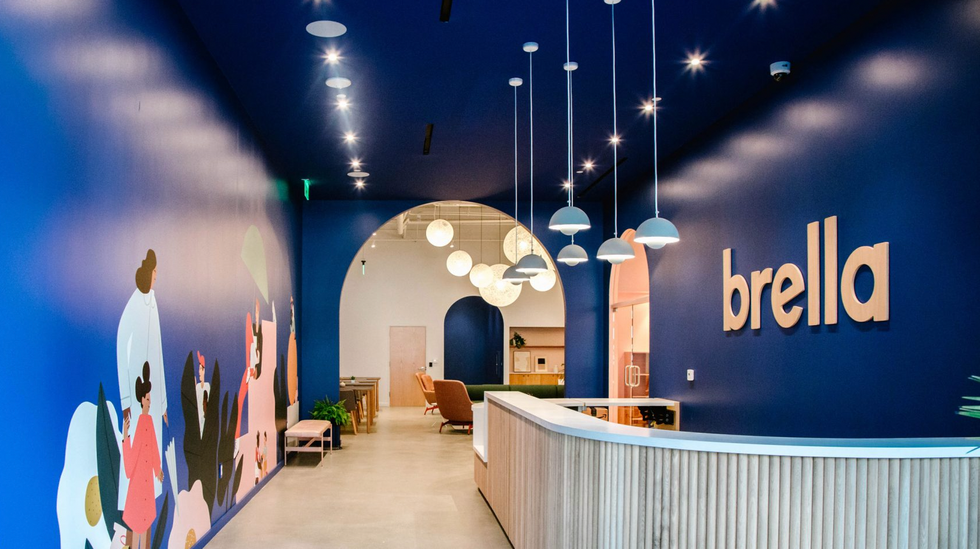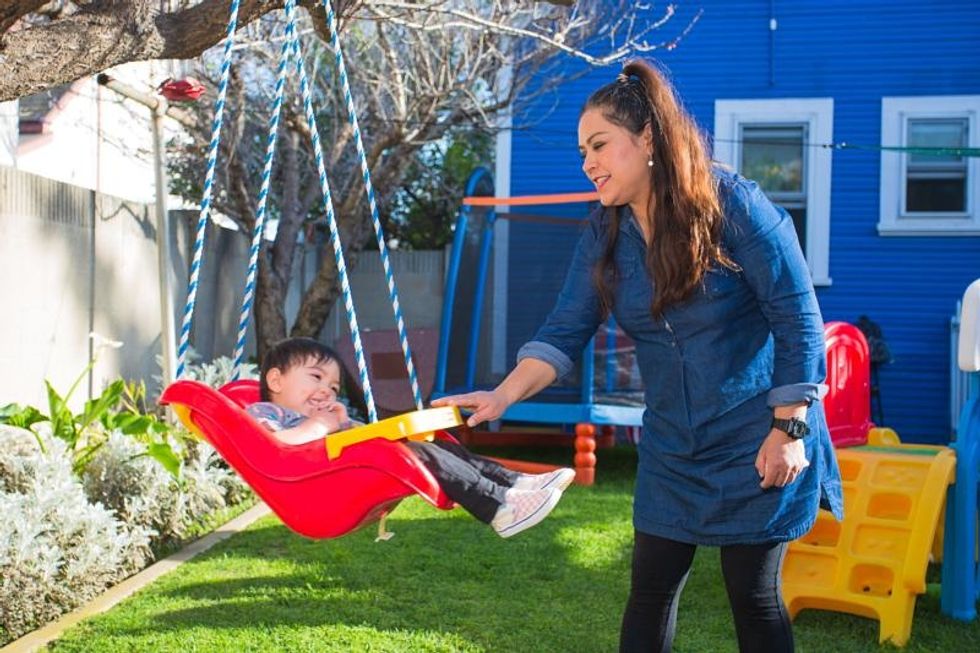The survey found 60% of the respondents, primarily women, were balancing increased caretaking roles with work or school responsibilities. And while caretaking responsibilities grew, 49% of respondents said their workload also increased during the pandemic.
“The pandemic threw a wrench into lots of folks’ experiences both professionally and academically,” said Kathryne Cooper, a health tech investor who sits on the advisory board of WiSTEM. “So we need to acknowledge that.”
In the L.A. area, an increasing number of childcare startups are aiming to address this massive challenge that is a growing national crisis. The U.S. has long dealt with a crippling childcare infrastructure plagued by low wages and a labor shortage in preschools and daycares, but the COVID-19 crisis made it worse. During the pandemic, women left the workforce due to the lack of childcare and caretaking resources. By 2021, women made up the lowest percentage of the workforce since 1988, according to the National Women’s Law Center. Despite the pandemic forcing everyone indoors, caretaking duties fell disproportionately on women.
“I almost actually left my job because everything that I looked at was either waitlisted or the costs were so astronomical that it probably made sense for me to stay at home rather than pay someone to actually look after my child,” said Jessica Chang, the CEO of childcare startup WeeCare.

The Marina del Rey-based WeeCare, one of the startups that helps people open their own childcare facilities, announced it raised $12 million in April (to go along with an additional $5 million in bridge funding raised during the pandemic). The company helps people build daycare centers and works with employers to provide access to WeeCare centers and construct child care benefits programs.
Some of these startups strive to boost the number of daycare centers by helping operators with financial costs, licensing fees and scheduling. Wonderschool, a San Francisco-based child care startup, raised $25 million in January and assisted with hundreds of childcare facilities in L.A.-based Playground, which raised $3 million in seed funding last year per PitchBook. Playground acts as an in-house platform for childcare providers to communicate with staff and parents, track attendance, report student behavior and provide automatic invoicing services.
L.A.-based Brella, which launched in 2019, raised $5 million in seed funding in January to create a tech-enabled daycare scheduling platform that could meet the demand of flexible childcare as parents navigate a hybrid work environment, and recently opened a new location in Hollywood. The startup aims to address the labor shortage among childcare workers by paying its workers roughly $25 an hour and offering mental health benefits and career development opportunities for its educators.
“It’s this huge disconnect in our society because these are really important people who are doing arguably one of the most important educational jobs,” said Melanie Wolff, co-founder of childcare startup Brella. “They often don’t get benefits. They don’t have a lot of job security.”
Venture capital funding has poured into the relatively new childcare sector. A slew of parent-tech companies aimed at finding flexible child care and monitoring children saw $1.4 billion worth of venture investments in 2021, according to PitchBook, largely to meet the demands of parents in a pandemic era who have more flexible work commutes and require more tech-enabled solutions.
“I think a lot of it has to do with what employers expect for workers,” said Darby Saxbe, an associate professor of psychology and family relationships expert at USC. “There’s still a lot more stigma for men to build their work around caregiving responsibilities–there’s a lot of evidence that men are often discouraged from taking paternity leave, even if it’s available.”

Photo courtesy of WeeCare
Childcare benefits are also becoming a more attractive incentive as workers grapple with unorthodox work schedules in a hybrid setting.
“Employers, because of COVID, were having a hard time retaining and recruiting employees,” said Chang. “And they were actually incentivized to actually find a solution to help the employees.”
WeeCare primarily partners with employers of essential workers, like schools, hospitals and grocery stores, and the benefits programs account for the majority of WeeCare’s revenue.
Childcare works are part of a massive labor shortage in caretaker roles that also include nurses, and health aids for the eldery. These workers, which allow women to maintain careers in STEM and other high-paying industries, are vital, according to Saxbe.
“Women can advance in the workplace,” Saxbe said. “But if there’s no support at home and there is no one who is helping take care of kids and elderly people, women can’t just advance in a vacuum.”
From Your Site Articles
Related Articles Around the Web
Credit: Source link


Comments are closed.